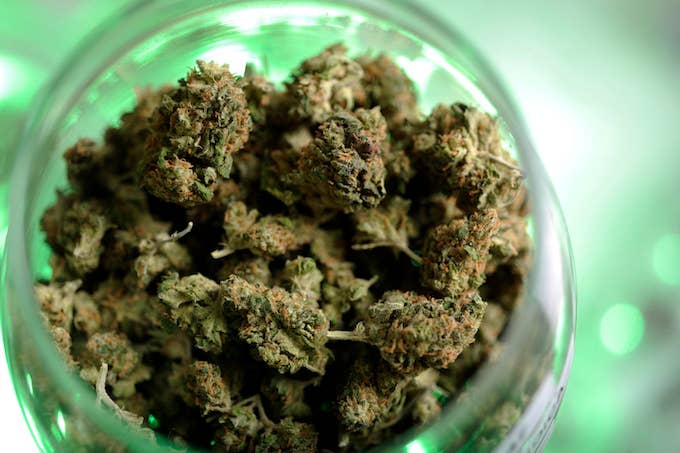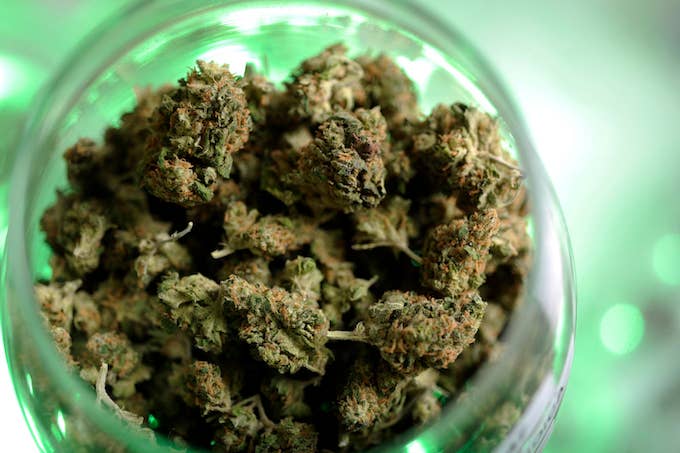
Over the last 10 years, there’s been an enormous spike in dogs accidentally eating marijuana.
Mashable reports that according to the ASPCA Poison Control Center, the 24-hour hotline took 208 weed-related calls in 2008. In 2016, it received 979 calls, then 1,486 in 2017 and 1,800 in 2018, a growth of 756 percent during a 10-year period.
The problem is only worsening as legal weed is more potent, edibles are more available in the U.S., and overall, using marijuana is more socially acceptable.
The ASPCA call center's medical director Dr. Tina Wismer says the bigger culprit is edibles. “Dogs, oh my gosh, especially [with] the chocolate-based edibles, the number of those calls has skyrocketed,” she told Mashable.
Dogs are especially sensitive to marijuana and are up to 10 times as sensitive to THC as humans, Hemp Industry Daily reports. Dr. Ken Palowski—a veterinarian in Cailfornia—told the Los Angeles Times that “dogs have more cannabinoid receptors than any other animal that we know.” While edibles sold in dispensaries are regulated and can’t have more than 100mg of THC per package and 10mg per serving, homemade edibles can be a wild card.
Side effects for dogs can include ataxia (wobbling or stumbling), overreactions to sound and movement, urinary incontinence, dilated pupils, glassy eyes, according to Mashable. Weed can be deadly if it causes a dog’s blood pressure or heart rate to drop too low.
If the dog eats a weed brownie, then the vet will give him or her a medication to induce vomiting, particularly because chocolate is toxic for dogs. Otherwise, vets will sometimes use a lipid injection to sober the dog up, or if the dog is stable, send him or her home under the watchful eye of the owner.
However, the pet industry has been exploring non-psychoactive cannabis products, such as CBD tinctures and infused treats for anxiety and chronic pain. Still, there isn’t much research on how dogs metabolize THC, CBD, and other cannabinoids.
“No one's regulating these products—is there actually some amount of THC in them?” Dr. Wismer said to Mashable. “Or is it that dogs make different metabolites than people do? Is it just dose related? Unfortunately, no one really knows what the answer is.”

